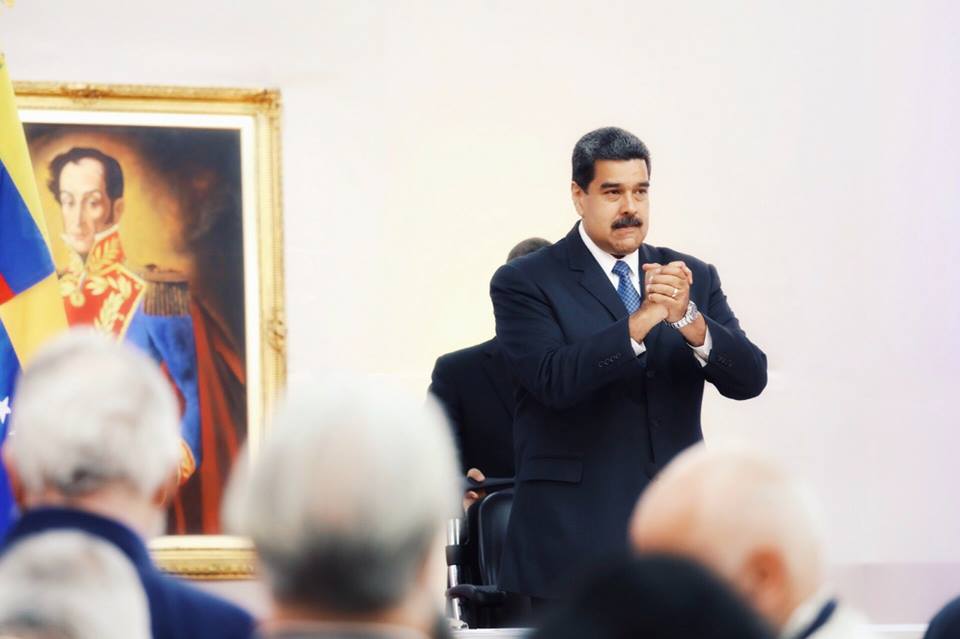
OTTAWA — Two major Canadian unions’ support for Venezuelan leader Nicolas Maduro is rooted in ignorance of the country’s struggle for freedom and the plight of its downtrodden and abused workers, Venezuelan pro-democracy activists say.
Major Canadian unions, including the Canadian Union of Public Employees and the Canadian Labour Congress, have criticized the Liberal government for backing Venezuela’s opposition leader Juan Guaido, the head of Venezuela’s legislature, as the legitimate interim leader of the country.
Canada and Latin American allies in the Lima Group, along with the United States, have been pushing Maduro, Venezuela’s socialist president, to step down. On Monday European countries including Spain, Germany, France, Britain, Sweden, Denmark, Austria, the Netherlands and Lithuania added their voices calling for free and fair elections as soon as possible.
They are supporting Venezuelan people who have taken to the streets in mass protests, blaming Maduro for keeping power through a rigged election and perpetuating the crisis that has wrecked Venezuela’s formerly oil-rich economy and forced three million of its citizens to flee their homes.
In a statement, CUPE supported the Maduro government and called the Liberals’ support of the opposition akin to aligning Canada with an American plan to engineer “a coup d’etat.” CUPE declined further comment on Tuesday.
The CLC said it is “alarmed at the escalation of international interference in the democratic process of a sovereign nation, including the possibility of military intervention.”
Those words leave Rebecca Sarfatti angry and hurt. She’s been a pro-democracy activist for her home country since coming to Canada in 2001.
“We’re talking about human beings. We’re talking about the future of a nation … It’s not about left or right, or politics,” said Sarfatti, a member of the non-profit Canada Venezuela Democracy Forum.
Sarfatti said it is “absurd” that unions that are supposed to represent the rights of workers can say, “don’t bother Maduro, let him keep being a dictator.”
“There’s people in Venezuela who are being abused, who are dying, or are being fired because they think different (from the government),” added Sarfatti.
Political scientist Angel Alvarez fled to Canada from Venezuela four years ago because, he said, he no longer had the academic freedom to teach.
The Canadian unions are undermining the international momentum that is required to force Maduro to step down and make way for peaceful elections, said Alvarez, who received his doctorate at Notre Dame University in the U.S. and was a department head at the Central University of Venezuela in Caracas.
“I think that they (the unions) are biased by ideological prejudice about previous experiences of the U.S. intervention in South America,” said Alvarez.
While he agrees the American history of intervention in Latin America has given rise to dictators and led to much bloodshed, he said the current situation is much different.
“They do not take into account the current situation in Venezuela needs strong diplomatic pressure on the government of Maduro and the military in order to find a peaceful solution.”
Hassan Yussuff, the president of the Canadian Labour Congress, said he understands how hard the crisis is for the Venezuelan people, and how important it is to find a peaceful, negotiated solution.
“I’m not approaching this from an ideological (perspective). I can’t speak for others; I’m speaking for myself,” said Yussuff, who is also the president of the Trade Union Confederation of the Americas, which has members in Venezuela.
“I don’t think you can separate the American history of military intervention and say this is different.”
Sarfatti said the anti-American rhetoric is an outdated view rooted in the 1960s, and that it is insulting to Canadians and Venezuelans.
“Canada has had the strongest voice and the leadership in this issue. The U.S. has joined what Canada and other South American countries are saying. It offends me when they say the U.S. is leading everything,” she said.
“It is Venezuelans’ choice. It is Venezuelans’ struggle — and fight.”
At the end of January, U.S. President Donald Trump’s national-security adviser John Bolton told reporters that no options are off the table in dealing with the situation in Venezuela. But a European diplomat who attended the closed-door talks in Ottawa on Monday said none of the discussion, especially with American participants, came anywhere near to proposing armed intervention. That included a 10-minute speech, via video link, from U.S. Secretary of State Mike Pompeo.
“He made a very strong speech in support of Juan Guaido and what he’s doing, underlining the constitutional nature of what he’s doing,” said the diplomat, who spoke on the condition of anonymity because of the sensitivity of the talks. “If anybody is leading the process at the moment, it’s Canada and Peru.”
Ben Rowswell, Canada’s ambassador to Venezuela from 2014 to 2017, said the current crisis shows that in the 21st century true sovereignty belongs to the citizens of a country, not their state.
“By remaining silent when the Venezuelan constitution was effectively suspended in 2017 and weighing in now in support of the Maduro government, CUPE has shown it believes sovereignty rests with states.”